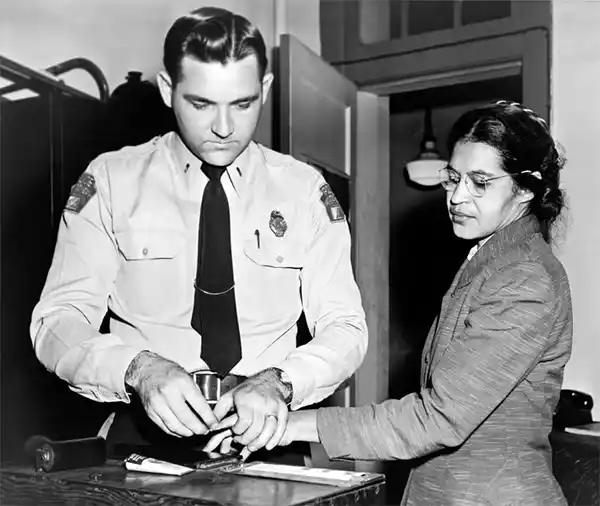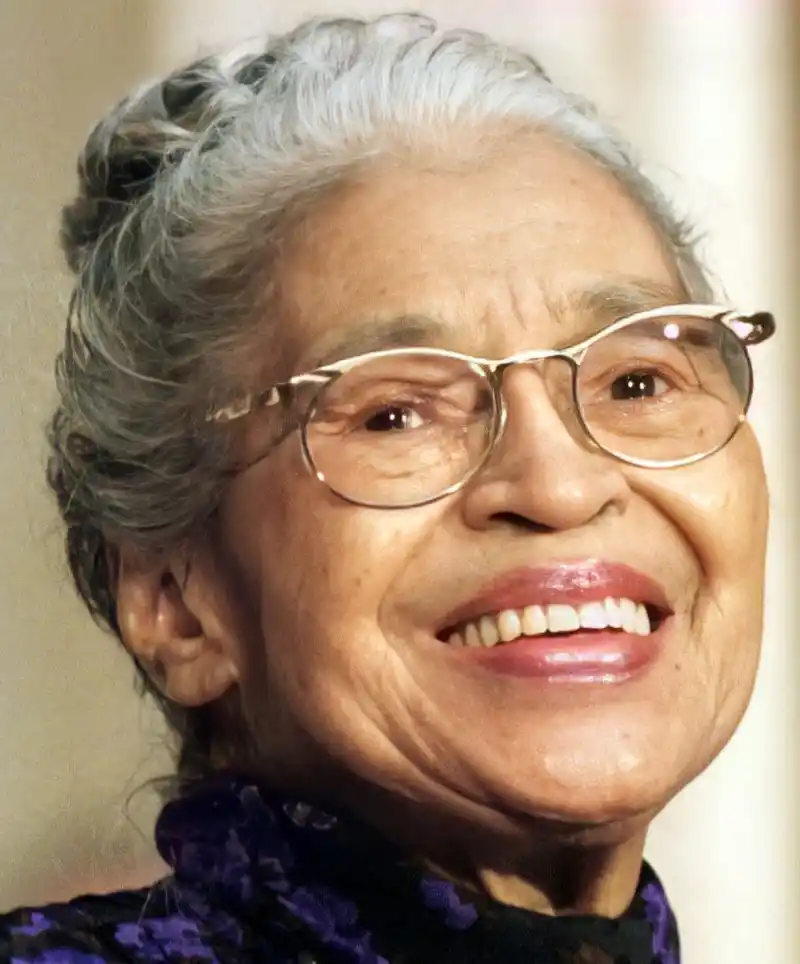Honoring the First Lady of Civil Rights
Every December 1st, we honor Rosa Parks, a woman whose quiet defiance sparked a loud and transformative movement. Rosa Parks Day commemorates the day she refused to give up her bus seat to a white man in Montgomery, Alabama, in 1955. The date isn’t arbitrary—it marks the anniversary of Rosa Parks' famous stand (or rather, sit) against racial injustice. On December 1, 1955, Rosa Parks boarded a Montgomery bus after a long day of work as a seamstress. She sat in the "colored" section, but as the bus filled, the driver demanded she give up her seat for a white passenger. Parks quietly refused, leading to her arrest.
This simple act of defiance wasn’t random. Parks was a seasoned activist and secretary of the Montgomery chapter of the NAACP. Her decision was calculated but not rehearsed—she described being "tired of giving in" more than being physically tired. Her arrest catalyzed the 381-day Montgomery Bus Boycott, during which the Black community organized carpools, walked miles to work, and endured hardship to demand equal treatment.
The Life of Rosa Parks
Born on February 4, 1913, in Tuskegee, Alabama, Rosa Louise McCauley Parks grew up witnessing the harsh realities of segregation. She married Raymond Parks, a barber and NAACP member, and together they worked to fight racial injustice.
After the boycott’s success and the Supreme Court ruling that segregation on public buses was unconstitutional, Parks and her family faced continued threats and harassment. They eventually relocated to Detroit, where Parks worked as a secretary for Congressman John Conyers and continued advocating for civil rights.
Her legacy includes awards like the Presidential Medal of Freedom and the Congressional Gold Medal, and she has been immortalized with statues, street names, and, of course, Rosa Parks Day.
The Power of a Seat
It’s said that Rosa Parks didn’t set out to make history that day—she just wanted to rest her feet. And rest them she did, in a way that sent shockwaves across the nation. Rosa Parks proved that a bus seat can be a powerful place to take a stand. It turns out that sitting down can be revolutionary—a message that resonates with anyone who’s ever wished for a little peace and quiet.
 Her refusal wasn’t about being stubborn; it was about holding onto dignity. Imagine explaining to future generations: "Grandma didn’t start her activism in a courtroom or a rally. She started it by saying, ‘No, thank you,’ to a bus driver."
Her refusal wasn’t about being stubborn; it was about holding onto dignity. Imagine explaining to future generations: "Grandma didn’t start her activism in a courtroom or a rally. She started it by saying, ‘No, thank you,’ to a bus driver."
How to Celebrate Rosa Parks Day
Celebrating Rosa Parks Day involves honoring her spirit of resistance and commitment to equality. Here are meaningful ways to observe the day:
- Educational Programs: Schools, libraries, and community centers often host events to teach about Rosa Parks and the Civil Rights Movement.
- Community Service: Volunteering to support social justice initiatives is a great way to honor Parks' commitment to equality.
- Reflective Activities: Watch documentaries, read biographies, or even take a moment to appreciate the progress made—and the work still left to do.
Rosa Parks in Popular Culture
Rosa Parks’ influence has transcended the history books and become a defining element of popular culture, inspiring artists, filmmakers, writers, and even everyday people to tell her story and embody her courage in unique ways. Here’s a look at how her legacy lives on in the creative world:
Books and Literature: Rosa Parks' story has been captured in numerous books that detail her life and the Civil Rights Movement. Some notable works include her autobiography, Rosa Parks: My Story, co-written with Jim Haskins, which offers a firsthand account of her life and activism. Another celebrated book, The Rebellious Life of Mrs. Rosa Parks by Jeanne Theoharis, reveals the depth of her lifelong commitment to fighting racial injustice beyond her famous bus stand. Children's books, such as I Am Rosa Parks by Brad Meltzer, introduce young readers to her story, ensuring her bravery continues to inspire new generations.
Film and Television: Rosa Parks has been portrayed in several films and documentaries, offering powerful dramatizations and factual accounts of her life. In 2002, the television film The Rosa Parks Story starred Angela Bassett in an Emmy-nominated performance that brought Parks’ personal and political struggles to life.
Documentaries like Mighty Times: The Legacy of Rosa Parks provide historical insights into the broader implications of her actions, showing the ripple effect of her courage on the Civil Rights Movement.
Rosa Parks has also been featured in historical segments of shows like Drunk History, where her story is recounted with a humorous yet respectful tone, proving her impact reaches across genres.
Music and Song: Musicians have also paid homage to Rosa Parks. The hip-hop duo OutKast released the song "Rosa Parks" in 1998, a track that uses her name as a metaphor for standing your ground. While the song led to a legal dispute over the use of her name, it remains a cultural reference point that underlines her influence on movements for empowerment and resistance.
Other artists, such as Aretha Franklin, who performed at Parks’ memorial service, and Nina Simone, have written music that reflects the spirit of the Civil Rights Movement and honors figures like Parks. Her legacy resonates in music that uplifts, challenges, and inspires.
Art and Monuments: Artists worldwide have captured Rosa Parks’ strength and resilience through visual art. From murals in urban settings to portraits in galleries, her image stands as a symbol of quiet defiance. Notably, in 2013, the U.S. Capitol unveiled a statue of Rosa Parks in its National Statuary Hall, making her the first African American woman to be honored in this way.
Pop Culture References: Rosa Parks’ legacy often appears in unexpected places, from comedy skits to inspirational quotes in modern-day activism. Her story has been retold in classrooms, podcasts, and even social media posts as a reminder of the power of individual action. Her name is often invoked in debates and discussions about civil rights, illustrating how she remains a touchstone for justice.
Technology Tributes: Even the tech world has paid tribute to Rosa Parks. In 2019, Google honored her with an interactive Google Doodle on her birthday, February 4th. The Doodle depicted her iconic moment on the bus and was accompanied by educational resources to inspire users worldwide.
The Broadway Stage: Theater has also embraced Rosa Parks' story, with plays and performances that explore her legacy and the Civil Rights Movement. Productions like A Seat for Rosa and segments in plays about the Montgomery Bus Boycott highlight her bravery and the communal efforts that followed her iconic protest.
Beyond Entertainment: Perhaps the most enduring testament to Rosa Parks’ place in popular culture is how her story has become a shorthand for courage and resistance. "Pulling a Rosa Parks" has entered the lexicon, used to describe anyone standing firm in the face of injustice. While her story is singular, its resonance is universal.
Why She Continues to Inspire: Rosa Parks' story is more than a moment in time—it’s a lesson that courage doesn’t always roar. It can sit quietly and resolutely, demanding respect without raising its voice. Her representation in popular culture ensures that her legacy remains accessible and relevant, reminding us all to stand—or sit—firm for what we believe in.
Through these diverse tributes, Rosa Parks continues to inspire hope, resilience, and the pursuit of justice in a world that still benefits from her brave actions.
Rosa Parks taught us that the smallest acts of defiance can lead to the biggest changes. On Rosa Parks Day, we remember her courage, celebrate her legacy, and remind ourselves that change often begins with a single, resolute "no."
So, this December 1st, whether you’re attending a commemorative event or simply reflecting on her life, take a moment to thank Rosa Parks—a woman who changed the world, one seat at a time.
Please Share our Content






 Her refusal wasn’t about being stubborn; it was about holding onto dignity. Imagine explaining to future generations: "Grandma didn’t start her activism in a courtroom or a rally. She started it by saying, ‘No, thank you,’ to a bus driver."
Her refusal wasn’t about being stubborn; it was about holding onto dignity. Imagine explaining to future generations: "Grandma didn’t start her activism in a courtroom or a rally. She started it by saying, ‘No, thank you,’ to a bus driver."








 "Sláinte!" is a traditional Irish expression used as a toast, equivalent to "Cheers!" in English.
"Sláinte!" is a traditional Irish expression used as a toast, equivalent to "Cheers!" in English.